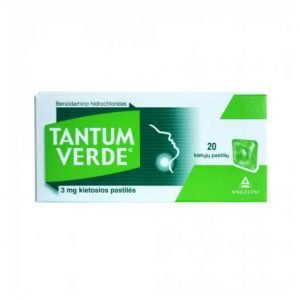ACC Long Product Description
Introduction:
ACC LONG effectively reduces mucus viscosity by dissolving its components and facilitating expectoration. It effectively treats acute and chronic respiratory diseases that accompany thick, viscous mucus and moist cough. Doctors prescribe ACC LONG effervescent tablets for adults and adolescents aged 14 years and above.
Ingredients:
ACC LONG contains acetylcysteine derived from lactose and sodium. If you have sugar intolerance, consult your doctor before taking this product. Each ACC 600 mg effervescent tablet contains 139 mg (6 mmol) of sodium.
Dosage:
Take medicine after meals. Dissolve one tablet in 1/2 glass of water before ingestion.
For adults and adolescents aged 14 years and above, the recommended dosage is 200 mg, two or three times a day.
Children aged 6 to 14 years should take either 1 tablet of 100mg or 1/2 tablet of ACC 200mg, three times a day, or 1 tablet of 200mg twice a day.
For children aged 2 to 5 years, the recommended dosage is 1 tablet of ACC 100, two or three times a day.
For cystic fibrosis: Children over 6 years old should take 200 mg, three times a day. Babies aged 2 to 6 years should take 100 mg, four times a day. The maximum dose for cystic fibrosis can be increased to 800 mg per day for patients weighing more than 30 kg.
Contraindications:
Product is not recommended for pregnant or lactating women, individuals with gastric or duodenal ulcers, hemoptysis, pulmonary hemorrhage, or hypersensitivity to acetylcysteine or any auxiliary component.
Precautions:
Exercise caution and seek medical supervision if you have gastric or duodenal ulcers (outside acute phase), varicose veins of the esophagus, adrenal gland diseases, bronchial asthma, hepatic or renal failure, or if you are a child under 2 years old (only for “vital” indications).
Side Effects:
Rarely, ACC LONG may cause headaches, tinnitus, stomatitis, skin rash, urticaria, pruritus, bronchospasm, or pulmonary bleeding. Some individuals may experience diarrhea, heartburn, nausea, vomiting, tachycardia, or low blood pressure. ACETYLCYSTEINE is not compatible with proteolytic enzymes and antibiotics such as tetracycline, erythromycin, amphotericin B, cephalosporins, and penicillins.
Do not use ACC LONG with antitussive drugs as they suppress the cough reflex, leading to dangerous mucus stagnation.
According to reviews, ACC LONG is generally well tolerated.
Conclusion:
ACC LONG effectively addresses respiratory conditions with thick, viscous mucus and moist cough. Follow the recommended dosages, contraindications, and precautions under medical supervision for relief and improved respiratory health.







Johnny –
Took 9 days to UK, expected longer though.